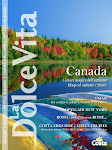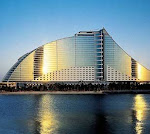Summary
We advise against all travel to Nagorno-Karabakh and the military occupied area surrounding it.
Azerbaijan faces a general threat from terrorism. Attacks could be indiscriminate and against civilian targets and places frequented by foreigners.
Outbreaks of Avian Influenza (Bird Flu) in Azerbaijan have led to a small number of human fatalities. The last fatality was in 2006.
You should avoid any political rallies or public gatherings of a political nature.
The main type of incident for which British nationals required consular assistance in 2007 was replacing lost and stolen passports. Crime against foreigners is generally low, but does occur.
For identification purposes you should carry the correct form of document at all times.
We recommend that you obtain comprehensive travel and medical insurance before travelling.
You should check any exclusions, and that your policy covers you for the activities you want to undertake.
Country Profile
The political situation in Azerbaijan is calm. Presidential elections held in 2003 and 2008, and parliamentary elections in 2005 and 2006 failed to meet international standards.
Demonstrations, both opposition and Government sponsored, occasionally take place in Azerbaijan, and mainly in Baku. Opposition rallies are usually heavily policed and there has been violence on occasions. We recommend that you keep well away from any official or unofficial gathering of a political nature.
Local Travel
We advise against all travel to Nagorno-Karabakh and the military occupied area surrounding it. This area is the subject of a continuing dispute between Azerbaijan and Armenia and although a cease-fire has been in place since 1994 there are regular exchanges of gunfire across the Line of Contact. Some areas may be heavily land mined.
You should not attempt to enter or leave Azerbaijan via the land borders with Russia (i.e. Dagestan) as these are closed to foreign nationals. If you hold a valid visa it is possible to cross the Iranian border at Astara.
Road Travel
You can drive in Azerbaijan using a licence issued by an EU country or by using an International Driving Licence.
Care should be taken when driving in Azerbaijan (particularly at night). Many roads and are of poor quality and are badly lit. Many cars are poorly maintained, and the standard of driving is erratic. Most taxis do not have seat belts.
Drink driving laws are strict and there is a zero limit on drinking alcohol and driving.
Rail Travel
As with other forms of public transport the Baku Metro is poorly maintained, often overcrowded and has inadequate safety and emergency equipment and procedures. Should you travel by train, secure your valuables, do not leave the compartment unattended, and lock the door from the inside.
Air Travel
It is not known whether safety procedures on aircraft used for internal and regional flights meet international standards. You should take this into consideration before using internal or regional flights.
Visas
The Azerbaijan Ministry for Foreign Affairs have stated that the new fees for single entry visas will match the fee charged for a UK six-Month Multiple Entry Visa - £63.00 (AZN 111). The fee can be paid in US dollars and Azerbaijani manats. You are advised to carry a sufficient amount of either currency to cover the cost of a visa. There are cash machines at the airport but these may not always work. In addition to the fee you should present two passport-sized photographs. A letter of invitation is also requested.
Please ensure to check the duration of your visa as soon as it is given to avoid unintentional illegal overstaying and problems with Immigration at the airport on leaving Azerbaijan.
Your visa should be valid when departing Azerbaijan. Extensions can be obtained at the Ministry for Foreign Affairs in Baku, 4 ShikhaliGurban Street, Baku (telephone 492 8383). An exit visa, which you would require if your visa has expired, costs AZN 111. You may also be liable for a fine for overstaying.
Passport validity
Passport should be valid for at least six months from the date of entry into Azerbaijan.
Caspian Sea ferry services
If you intend to take one of the Caspian Sea ferry services from Azerbaijan to Turkmenistan or Kazakhstan you should be aware that you need a valid visa for that country before you travel. You may find that if you arrive at your destination without a valid visa you will be returned back to Azerbaijan. Please note that there is no Embassy of Turkmenistan in Baku. Visas for Turkmenistan should be obtained before arriving in Azerbaijan.
Staying for longer than 30 days
All foreign nationals staying in Azerbaijan for longer than 30 days are required to carry an official ID card. This can be obtained from the police station nearest to your residence. We advise you to carry a photocopy of your passport details page and existing Azerbaijan visa while your application for a new or renewed visa or ID card is being processed. This can take between 1-2 weeks. Ministry of Interior Police conduct random checks of expatriates, and have detained some who were not carrying valid ID cards in accordance with the law.
Travelling with children
Single parents or other adults travelling alone with children should be aware that some countries require documentary evidence of parental responsibility before allowing lone parents to enter the country or, in some cases, before permitting the children to leave the country.
Insurance
You are advised to obtain comprehensive medical as well as travel insurance to cover illness, injury and loss of money, baggage and tickets before travelling. You should check any exclusions, and that your policy covers you for all the activities you want to undertake. Serious illness or injury may require evacuation to Turkey or Western Europe so you should ensure that your insurance covers this.
Money
All goods and services should be paid for in local currency (Manats). However, US Dollars and the Euro are widely used. Sterling, US Dollars and Euros can easily be exchanged for the local currency. Major hotels and international supermarkets and restaurants accept credit cards. You are advised not to carry large amounts of cash. ATMs can be found in most major towns and cities.














No comments:
Post a Comment